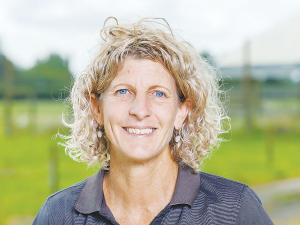A New Zealand/Ireland joint research programme, launched last month, aims to better understand methane emissions from pasture-based farm systems.
The four-year programme will see researchers, students, professors and database technology experts from DairyNZ (NZ) and Ireland’s Agriculture and Food Development Authority (Teagasc), University College Cork and Irish Cattle Breeding Federation working together to quantify methane emissions from dairy cows in pasture-based systems.
DairyNZ principal scientist Jane Kay says they aim to determine the effect stage of lactation and pasture species, management and seasonal growth have on base methane emissions, and how these factors influence cows’ response to methane-reducing technologies.
“The joint programme strengthens our connection with Ireland and enables NZ to leverage current and future research. It also fits within DairyNZ’s wider research programme.
“This wider programme sees our world-leading scientists working with NZ farmers, research organisations and commercial companies to develop workable and scalable mitigation solutions that can be widely adopted on-farm to reduce emissions in a sustainable and viable way.”
DairyNZ was awarded funding in 2023 for this work, as part of a pilot joint research initiative between New Zealand and Ireland.
The programme will also develop a methane database for pasturebased systems to ensure emissions and mitigations are accurately accounted for at a farm and national level in NZ and Ireland. Both countries face national and market targets to reduce methane.
Kiwi farmers are among the world’s most emissions-efficient.
Consumer and dairy supplier expectations are a driver for dairy farmers to continue reducing emissions, so NZ can remain competitive in the market. DairyNZ’s continued research supports that.
“Finding solutions to help farmers reduce emissions while maintaining on-farm profit remains a research priority,” Kay says.
Over the past 20 years, potential technologies to reduce methane emissions have emerged from all over the world. DairyNZ is focused on potential technologies that fit within NZ’s pasture- based systems, such as early life intervention, which involves feeding a natural product to young calves, with the aim of reducing methane emissions for the animal’s lifetime.
“This is an attractive delivery mechanism for NZ, as it’s cost-effective and occurs well before product processing, such as milk harvesting,” Kay says.
Most of the research on methane mitigation technologies is completed at Lye Farm, one of DairyNZ’s two Waikato research farms. Lye and Scott Farms are an important sector resource, enabling scientists to carry out pasture, animal, and farm systems trials under relevant conditions. This ensures the technologies and tools developed are practical and can be widely adopted into different farm systems.
Farmers are involved in all the projects, to provide their thoughts and advice on opportunities or barriers for adoption of these solutions into NZ farm systems.
“We’re excited about our continued work alongside farmers and other sector and research organisations to develop mitigation solutions for our unique pasture-based farm systems – and to get ahead of the environmental challenges farmers face,” Kay says


















